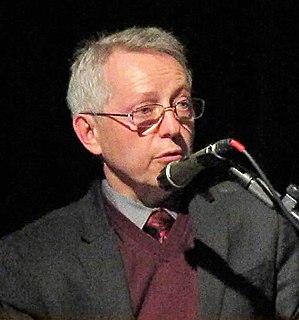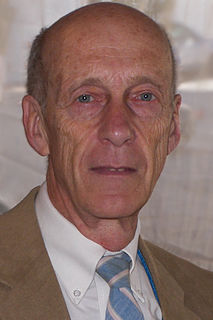A Quote by Terryl L. Givens
The earliest religious texts in the West ascribe to humankind both a prehistory and a destiny among the gods. M. David Litwa presents a striking survey of the varieties the latter of these beliefs has had, both within and outside the Christian tradition. Becoming Divine reconstructs an accessible and fascinating mosaic of this too-long neglected idea, utilizing figures as disparate as Orphic cultists, Augustine, and Nietzsche.
Related Quotes
I believe the world, and particularly the Judeo-Christian West, is in a crisis. And it is a crisis of - both of capitalism, but really of the underpinnings of the Judeo-Christian West and our beliefs. We are in an outright war against jihadists, Islam, Islamic fascism. And this war is, I think, metastasizing almost far quicker than governments can handle it.
"Both Christianity and Islam are logocentric," he told his students, "meaning they are focused on the Word. In Christian tradition, the Word became flesh in the book of John: 'And the Word was made flesh, and He dwelt among us. 'Therefore, it was acceptable to depict the Word as having a human form. In Islamic tradition, however, the Word did not become flesh, and therefore the Word needs to remain in the form of a word … in most cases, calligraphic renderings of the names of the holy figures of Islam."
Studies of the people named and described in earliest Christian texts show that, right from the earliest years, they included craftsmen, merchants, and owners of businesses. Of course, there were also slaves and poor among believers. By at least the second century, there were also believers from upper levels of Roman society.
In the West nowadays, it's very common to talk about the Judeo- Christian tradition. It's a common term. The term is relatively modern but the reality is an old one. One could with equal justification talk about a Judeo-Islamic tradition or a Christian-Islamic tradition. These three religions are interlinked in many signification ways, which marks them off from the rest of the world. And I think there is a growing awareness of this among Christians and among Jews, and even to some extent to some Muslims. That's happening for obvious reasons.
The life of West, Nietzsche said, is based on Christianity. The values of the West are based on Christianity. Some of these values seem to have taken a life of their own, and this gives us the illusion that we can get rid of Christianity and keep the values. This, Nietzsche says, is an illusion...Remove the Christian foundation, and the values must go too.
An interesting thing about the religious people who run Iran is that one of their problems with Ahmadinejad, who they thought would be one of their guys because he's so religious, is that he actually has some really nutty ideas about religion. He's too religious. He's too literal. I mean, there are plenty of people in Iran who like Ahmadinejad's religious beliefs, just as there are plenty of Christian fundamentalists in America who like George W. Bush's beliefs. But there are also plenty of people who are very uncomfortable with his overt religiosity.
One reason why I recommend the abandonment of religious beliefs is because I think those beliefs are wrong. There is no evidence that our world was created by divine intention, that a god intercedes in human affairs, or that there is life after death. Religion is a hangover from humankind's timorous infancy; it's time for us to walk upright and unafraid, and to take charge of our own lives.
There has been a religious revival because - let me put it like this, the people that weren't traditionally religious, conventionally religious, had a religion of their own in my youth. These were liberals who believed in the idea of progress or they were Marxists. Both of these secular religions have broken down.
I am like all other atheists only in that I do not believe there are any gods. Beyond that, I may differ dramatically in my values and beliefs from any other atheist. On both sides of the political spectrum, one can find the neo-conservative Objectivists and the ultra-liberal Communists, both of whom hate each other. These two factions take up nearly opposite sets of values, yet both are comprised of unabashed atheists.


































